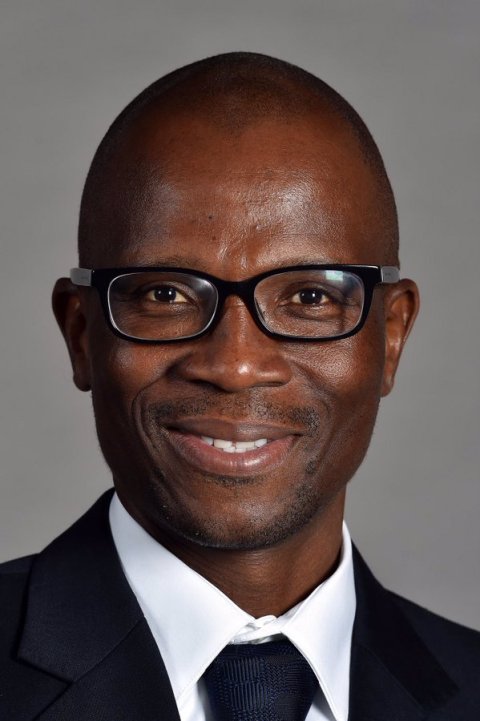Masondo Highlights Infrastructure Reforms to Spur Growth at SAI20 Summit
South Africa is currently serving as the G20 Presidency holder from December 2024 to November 2025, operating under the guiding theme of “Solidarity, Equality, and Sustainability.”

- Country:
- South Africa
At the Supreme Audit Institutions (SAI20) Summit held this week, South Africa’s Deputy Minister of Finance, Dr. David Masondo, underscored the critical role infrastructure development plays in the country’s broader economic reform strategy. Addressing leaders and experts from G20 nations, Masondo outlined the country’s ambitious infrastructure-led approach to stimulate economic growth, foster job creation, and enhance service delivery.
South Africa is currently serving as the G20 Presidency holder from December 2024 to November 2025, operating under the guiding theme of “Solidarity, Equality, and Sustainability.” In this capacity, the nation is spearheading discussions and partnerships that reflect these values on both domestic and global scales.
Reinvigorating the Economy Through Strategic Infrastructure Investment
Masondo reaffirmed that the South African government has committed significant public investment into infrastructure as a tool for structural transformation. “We have ambitious infrastructure development programs that have been undertaken in our country,” he said, citing these as crucial for unlocking productivity and improving socio-economic outcomes.
South Africa's infrastructure development program is not just focused on building new physical assets, but on modernizing existing systems, catalyzing private sector involvement, and enhancing cross-border connectivity. This multifaceted agenda includes energy, transport, water, digital networks, and social infrastructure such as hospitals and schools.
Unlocking Private Sector Participation in Key Sectors
Recognizing that public investment alone is insufficient, Masondo emphasized the government’s resolve to boost private sector involvement in traditionally state-led sectors like electricity generation, rail logistics, telecommunications, and water supply.
In March 2025, Transport Minister Barbara Creecy introduced an online Request for Information (RFI) platform. This digital tool is designed to crowdsource ideas and solicit proposals from private investors interested in rail and port infrastructure development.
Complementing this, Transnet, the state logistics entity, in May 2025 awarded a R17 billion concession contract to five private companies for the funding, construction, and operation of liquid bulk terminals at the Port of Richards Bay. This marks a significant shift in port operations and underscores the potential for public-private partnerships (PPPs) to improve service quality and capacity in freight logistics.
Revitalizing Rail and Port Systems: A Strategic Priority
South Africa’s logistical systems—especially rail and port infrastructure—have long been marred by bottlenecks and operational inefficiencies. The government, in partnership with stakeholders, has launched a turnaround strategy to address these longstanding issues.
Efforts include:
-
Port revitalization projects
-
Rail network rehabilitation
-
Freight corridor optimization
-
Policy reform to allow greater competition and innovation
Masondo noted these developments are critical to unlocking export potential and ensuring the country’s integration into regional and global trade networks.
Operation Vulindlela: Driving Structural Reform
Central to South Africa’s infrastructure reform journey is Operation Vulindlela, a joint initiative between the Presidency and National Treasury. The program, now in its second phase, is tasked with implementing high-impact structural reforms that remove barriers to investment and stimulate inclusive economic growth.
Phase I Achievements:
-
Unbundling of Eskom and electricity market liberalization
-
Licensing of private power producers
-
Telecommunications spectrum auction
-
Water infrastructure regulations
-
Visa system overhaul for skilled immigrants
Nearly all of the Phase I reforms have either been completed or are on track, setting the foundation for more systemic improvements.
Phase II Objectives:
-
Improving local government performance
-
Addressing spatial inequality via housing and land use reforms
-
Accelerating digital transformation, including the deployment of digital public infrastructure (DPI) like:
-
Digital identity systems
-
E-payment platforms
-
Interoperable databases for better service delivery
-
This digital shift aims to stimulate economic activity, expand e-governance, and ensure more efficient, transparent public service access.
Global Engagement Through the SAI20 Platform
The SAI20 Summit brings together Supreme Audit Institutions from G20 countries to exchange ideas and strategies related to governance, transparency, and development financing. With South Africa chairing the group this year, the forum provided a timely opportunity to present its reform agenda and gain support for domestic initiatives aligned with global best practices.
Masondo emphasized the importance of accountability mechanisms and performance auditing to ensure that infrastructure projects deliver value for money and are aligned with national development goals.
Looking Ahead: Infrastructure as a Catalyst for Sustainable Growth
As South Africa navigates a complex global economic landscape, its renewed focus on infrastructure, enhanced private sector participation, and robust governance reforms position it to unlock new opportunities. With Operation Vulindlela driving policy innovation and international forums like SAI20 offering platforms for collaboration, the country is set to advance toward its development vision in a sustainable and inclusive manner.
ALSO READ
Boosting Coal Logistics: Ministers Review Silo Loading Strategy
BEML Lays Foundation for Cutting-Edge Logistics Hub in Bilaspur
Nitin Gadkari Unveils Logistics Milestones at ET Edge SCM Fest 2025
AVG Logistics Launches Electric Fleet, Sets Benchmark for Green Logistics in India
Adani Logistics Unveils India's First Double Stack Rake Service










